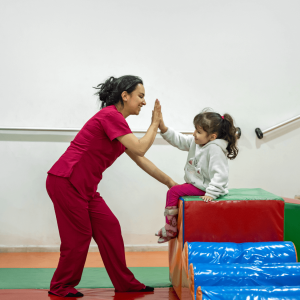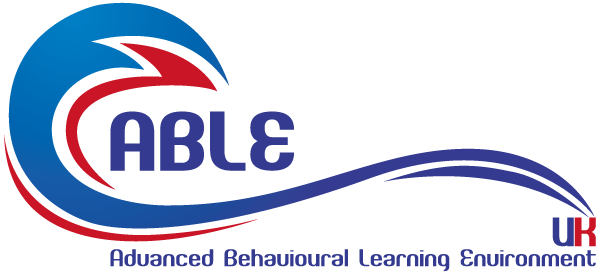How ABA Therapy Supports School Readiness in Children with Autism

How ABA Therapy Supports School Readiness in Children with Autism
The journey toward school readiness for children with autism involves much more than academic preparation. It’s a comprehensive process that combines behavioural, social, and practical skills development, with Applied Behaviour Analysis (ABA) therapy playing a pivotal role in this transition. Let’s explore how ABA therapy helps prepare children with autism for the classroom environment and sets them up for educational success.
Getting your child into school can be exciting and at the same time daunting for parents especially for parents with kids with developmental needs. When we think about school readiness, many parents initially focus on academic skills like counting or recognizing letters. However, the scope extends far beyond these basics. School readiness encompasses following instructions, sitting at a desk, interacting with peers, and managing daily routines – all areas where ABA therapy excels in providing structured support.
ABA therapy works by breaking down complex behaviors into manageable steps, using positive reinforcement to encourage desired behaviors while systematically addressing challenging ones. This methodical approach proves particularly effective when preparing children with autism for the school environment, where multiple skills need to come together seamlessly.
Building Fundamental Skills
The foundation of school readiness begins with basic attending skills. ABA therapists work with children to develop their ability to maintain eye contact, respond to their name, and follow simple instructions. These seemingly straightforward skills form the cornerstone of classroom learning. For example, a child needs to look at the teacher when receiving instructions, stay seated during lesson time, and transition between activities smoothly. ABA therapy addresses each of these components through systematic training, gradually increasing the complexity as the child learns each level.
Many families in Dubai combine ABA therapy with occupational therapy to enhance these foundational skills. While ABA therapy focuses on behaviour and learning patterns, occupational therapy Dubai providers often work alongside ABA therapists to address sensory processing and motor skills essential for classroom success.
Developing Social Communication
One of the most challenging aspects of school readiness for children with autism involves social communication. ABA therapy tackles this through structured interactions and social skills training. Therapists create opportunities for children to practice appropriate greetings, turn-taking, and sharing. These are crucial skills for classroom participation.
The therapy sessions might include role-playing scenarios that mirror common school situations, helping children understand and navigate social expectations. From raising hands to ask questions to working in groups, these skills are carefully taught and reinforced through positive feedback and practice.
Managing Classroom Behaviours
The structured environment of a classroom presents unique challenges for children with autism. ABA therapy helps prepare them by teaching appropriate classroom behaviours and self-regulation strategies. Therapists work on reducing behaviours that might interfere with learning while strengthening those that promote educational success.
Through consistent practice and positive reinforcement, children learn to:
- Transition between activities with minimal disruption
- Wait their turn during group activities
- Follow multi-step instructions
- Manage frustration appropriately
- Stay engaged in non-preferred activities
Supporting Academic Readiness
While behavioural and social skills form the foundation, ABA therapy also supports academic readiness. Therapists use evidence-based techniques to teach pre-academic skills like matching, sorting, and pattern recognition. These fundamental concepts prepare children for more complex learning tasks they’ll encounter in school.
The therapy approach is individualized and takes into account each child’s current abilities and learning style. Some children might need more support with number concepts, while others might require additional help with pre-writing skills. ABA therapy’s data-driven approach allows for precise tracking of progress and adjustment of teaching strategies as needed.
Success in school readiness largely depends on the collaboration between parents and therapists. ABA programs typically include parent training components, ensuring that skills practiced during therapy sessions can be reinforced at home. This consistency across environments helps children generalize their learning and maintain progress.
Parents learn strategies to support their child’s development and prepare them for the school environment. From establishing morning routines to practicing school-related activities at home, this partnership creates a strong foundation for successful school transition.
Addressing Sensory Needs
Many children with autism experience sensory sensitivities that can impact their ability to function in a classroom environment. ABA therapy, often in conjunction with occupational therapy services, helps children develop coping strategies for managing sensory challenges they might encounter at school.
This might include gradual exposure to common classroom sounds, textures, and visual stimuli, along with teaching self-regulation techniques. By addressing these sensory needs before school entry, children are better equipped to focus on learning and social interaction.
The Transition Process
As the child approaches school age, ABA therapy focuses increasingly on specific skills needed for their educational setting. Therapists might conduct sessions in environments that simulate classroom conditions, gradually increasing the complexity of tasks and expectations. The transition process often includes:
- Visiting the future school environment
- Practicing school routines
- Meeting teachers and staff
- Familiarizing with classroom materials
- Building independence in self-help skills
As we conclude, remember that ABA therapy provides comprehensive support for children with autism preparing to enter school, addressing not just academic readiness but the full spectrum of skills needed for classroom success. Through systematic skill-building, positive reinforcement, and collaboration with families and other professionals, ABA therapy creates a strong foundation for educational achievement.
The journey to school readiness is unique for each child, and ABA therapy’s data-driven, individualized approach ensures that support is tailored to meet specific needs. By combining behavioural, social, and academic preparation with attention to sensory needs and family involvement, ABA therapy helps create a smooth transition into the school environment.
Remember, success in school involves more than just academic ability – it requires a complex interplay of behavioural, social, and practical skills. With the right support and preparation through ABA therapy, children with autism can develop the comprehensive skill set needed to thrive in their educational journey.
